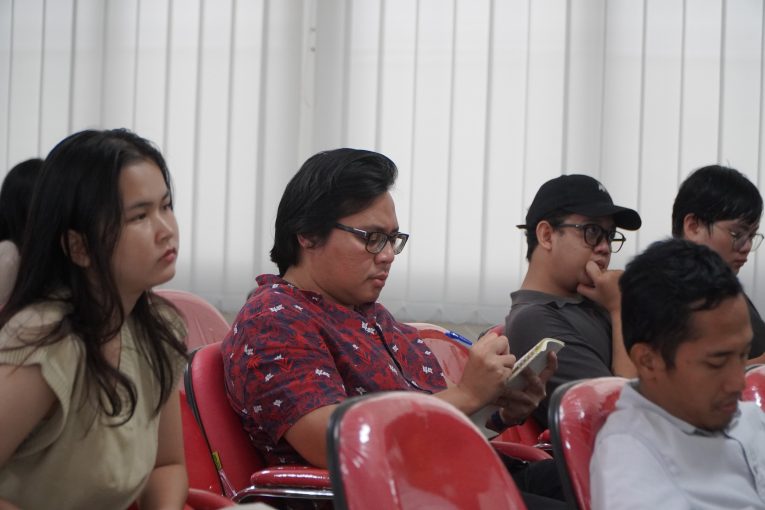
The Faculty of Philosophy at Universitas Gadjah Mada (UGM) continued its Lecture Series in celebration of World Logic Day, featuring Dr. Sara L. Uckerman from Durham University, United Kingdom, as the keynote speaker. In the second session, held yesterday (6/1), Sara presented an intriguing and in-depth topic: “Fiction Writing as Philosophical Methodology.” She began by discussing philosophical methodologies in general, focusing particularly on approaches within the analytic philosophy tradition.
Sara explained that philosophical methodologies often involve thought experiments, which serve to test intuitions and unpack philosophical arguments. She emphasized that thought experiments differ from scientific experiments; while the latter involves direct observation of the physical world, thought experiments are entirely imaginative. They entail creating hypothetical scenarios that may not occur in real life but are valuable for testing ideas and philosophical intuitions.
As an example, Sara referenced the classic thought experiment known as The Trolley Problem. She described a scenario where a trolley is heading toward a fork in the track. On one track, five people are tied up and unable to escape, while on the other, only one person is tied up. A bystander has the option to pull a lever, diverting the trolley to the track with one person. Though unrealistic, this scenario tests our ethical intuitions about active intervention—pulling the lever—versus inaction—letting the trolley continue its course.
“Thought experiments like these help us explore profound questions about how we value human life and distinguish between killing and letting someone die,” Sara stated.
According to her, thought experiments in philosophy function as a form of fiction aimed at a specific purpose: exploring the implications of certain assumptions or principles within a theory. This methodology allows philosophers to construct complex scenarios that can reveal hidden aspects of an argument. Sara emphasized that philosophical fiction is not merely a form of entertainment but a serious tool for systematic and critical thinking.
This second session offered participants fresh insights into the significant role of fiction in philosophical methodology. Through a systematic approach and concrete examples, Sara successfully demonstrated that fiction writing is not just a creative activity but also a powerful tool for philosophical analysis.
The Lecture Series will conclude with a Public Lecture titled “Why Logic Matters” on January 7, 2025. The event is expected to provide a deeper understanding of the relevance of logic in everyday life and academic practice.
